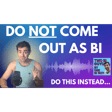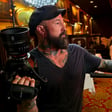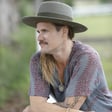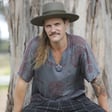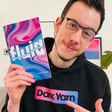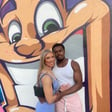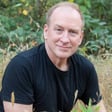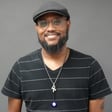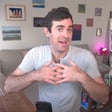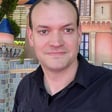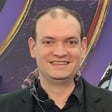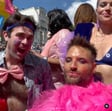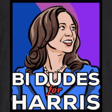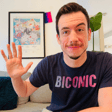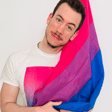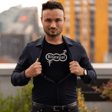
Infinite Love & the Sacred Whore with Dr. Herukhuti
Follow Dr. Herukhuti on Twitter: https://twitter.com/drherukhuti
Follow Dr. Herukhuti on Instagram: https://www.instagram.com/dr_herukhuti/
Buy "Recognize: The Voices of Bisexual Men": https://www.amazon.com/Recognize-Editors-Robyn-Sharif-Williams/dp/0965388174
Bodeme in Harlem: An African Diasporic Autoethnography: https://www.researchgate.net/publication/233134389_Bodeme_in_Harlem_An_African_Diasporic_Autoethnography
Center for Culture, Sexuality and Spirituality: https://sacredsexualities.org/
Two Bi Guys is now sponsored by Zencastr! You can get 30% off Zencastr for 3 months with promo code: twobiguys -- or just click this link: https://zencastr.com/pricing?coupon=twobiguys&fpr=ex42o. Start recording your own podcast or meetings today!
Two Bi Guys is produced and edited by Rob Cohen
Created by Rob Cohen and Alex Boyd
Logo art by Kaitlin Weinman
Music by Ross Mintzer
We are supported by The Gotham
This week I had the privilege of speaking with another bi-con, H. Sharif Williams, also known as Dr. Herukhuti -- he is an artist, sexologist, social entrepreneur, educator, and activist whose work operates at the intersection of race, culture, sexuality and spirituality. (FYI: there was an audio issue when he begins speaking, but we fixed it after a couple minutes!)
We chatted about the book he edited with Robyn Ochs, "Recognize: The Voices of Bisexual Men"; his "bodeme" identity and how & when he chooses to use labels like "bisexual"; intersectionality and marginalization within minority communities; how love is commodified under capitalism and how he recognized himself as polyamorous as a result; the holiness of sex and what it means to be a "sacred whore"; American cheese as a metaphor for being racialized as "white" in America; Dr. Herukhuti's artwork and mission behind it; his documentary "No Homo No Hetero"; and much more.
